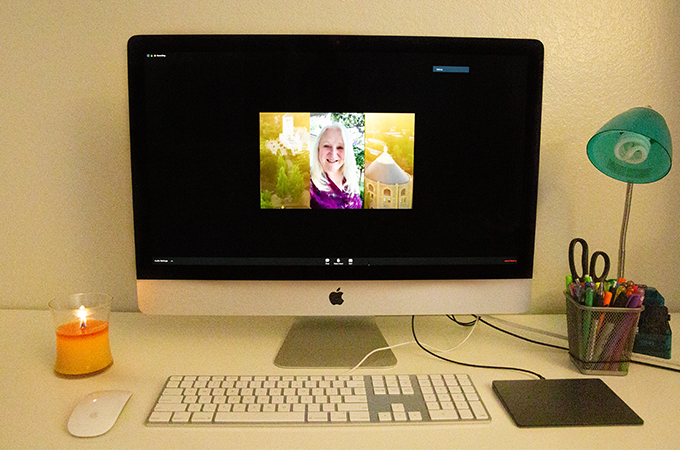Marcia McFee, a visiting professor of liturgical studies and the Ford Chair for Congregational Studies at San Francisco Theological Seminary (SFTS), addresses the importance of ritualizing and making meaning in a time of pandemic and social upheaval, drawing on the past as we innovate into the future.
Bulldog Blog: What do you mean when you describe yourself as a ritual artist?
McFee: Ritual studies is a field fascinated with how and why humans create patterns of making meaning that help them make sense of the world and symbolize who they are. “Ritual artists” is my phrase for worship leaders, but it’s more inclusive because I think ritual happens in many places. Protests are rituals—not just in a faith-based building, it can be in the streets. Symbol systems are made up of ancient symbols, but symbols also can be made spontaneously, for instance, taking a knee. Symbol systems are created both in the ancient and new related to current context, which is why we have controversy over symbols, because people interpret them in different ways.
BB: How do your courses more fully define rituals, even beyond a faith community?
McFee: My students, especially in my ritual studies course, came up with some very innovative ways to acknowledge rites of passage and to create some of those opportunities based on common human activities, such as eating together or a morning ritual that orients you, like meditation. It’s taking the ancient concept of ritual and applying it to current contexts, asking, “How can we take these ordinary occurrences and give a little bit more intention towards them to create this sense of the sacred?”
BB: Do you foresee a lasting effect from virtual worship during the pandemic?
McFee: Churches were initially reticent to embracing technology as a way of getting their message out but now have had to embrace it and see some of the benefits. We’re also aware that we have to communicate in many ways. I think that we’re not going to return to just one way of worship, and we will have to use a multiplicity of methods moving forward. I’m working with a church, and we’re playing with idea of continuing with online pre-recorded worship on YouTube, then offering a timeframe for people to participate in “walk-through worship.” Congregants will come into their beloved sanctuary, the organist will play, people will be able to look around for a little bit, and then move on.
BB: How can people maintain that sense of the familiar and sacred when everything has to be different?
McFee: For some people, what “feels like church” is sitting in their beloved spot in their pew where they’ve sat for the last 50 years. I’ve suggested that worshippers not just sit at their computers at home and watch online worship, but that congregational leaders offer moments that invite these worshippers to light a candle in their home space, break bread, and share that bread. I also encourage them to take some film of their sanctuary, of beloved windows or candles in familiar spots, and sprinkle that B-roll footage into their prerecorded worship. It activates the memories that give off the same feelings as if we were physically there.
BB: As we look forward into the future, what role do you see for drawing on the past?
McFee: People, especially in churches, when they’re complaining about innovation, will say, “But we’ve always done it this way,” which really is only one or two generations’ worth of memory. Some of the ways that people have gathered have been innovative in the past because they were oppressed and had to worship in secret or their circumstances created certain needs; so, we’re not the first ones in history to have undergone changes. Looking to historical evidence of what different communities have done in the past to adapt gives us hope that we will also be able to adapt … and find ways to meet basic needs to find connection, to find meaning and purpose in life, and to have hope.
Learn more about SFTS and the U of R Graduate School of Theology.
Editor’s Note: A version of this article first ran as part of the cover story of Chimes magazine, paired with an interview with SFTS Visiting Professor of Old Testament Rev. Jon L. Berquist, Ph.D.






